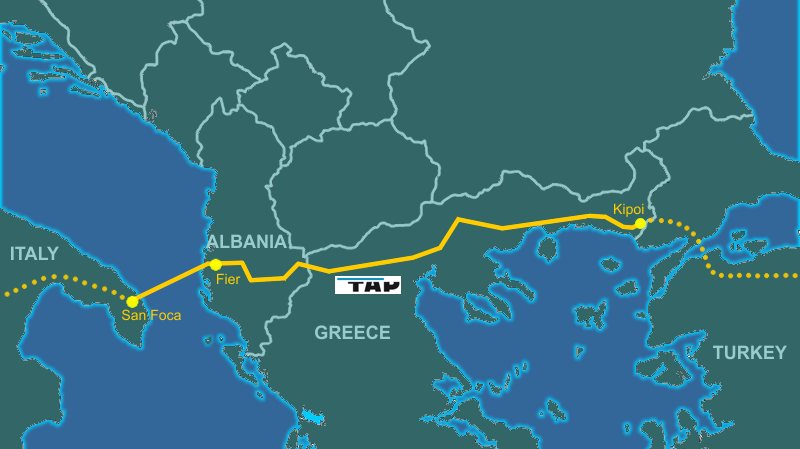
"We envisage hydrogen concentrations being increased in incremental steps in line with the development of the hydrogen market and relevant demand, as well as the evolving regulatory framework both at EU and member state levels," said the TAP AG consortium.
The Trans Adriatic Pipeline (TAP) consortium will test its asset materials for hydrogen supplies this month, TAP AG told Trend.
"We are in the process of assessing the degree to which TAP can technically accommodate transporting a blend of natural gas and hydrogen. In 2021, an Initial Hydrogen Readiness study confirmed that TAP has the potential to transport hydrogen blend. We will start the testing of our asset materials this month and we expect the initial results for the offshore pipeline towards the beginning of Q2 2024," said the consortium.
TAP AG said its ambition is to develop the asset to allow transportation of hydrogen, initially in the form of a blend with natural gas.
"We envisage hydrogen concentrations being increased in incremental steps in line with the development of the hydrogen market and relevant demand, as well as the evolving regulatory framework both at EU and member state levels," said the consortium.
TAP transports natural gas from the giant Shah Deniz field in the Azerbaijani sector of the Caspian Sea to Europe. The 878 km long pipeline connects with the Trans Anatolian Pipeline (TANAP) at the Turkish-Greek border in Kipoi, crosses Greece and Albania and the Adriatic Sea, before coming ashore in Southern Italy.
TAP facilitates gas supplies to South Eastern European countries through existing and prospective interconnectors. TAP is connected to Interconnector Greece Bulgaria (IGB) which started its commercial operations in October 2022, providing Caspian gas to Bulgaria, enhancing security of energy supplies in one more European country.